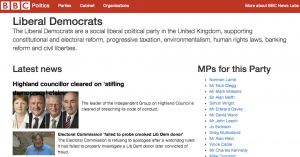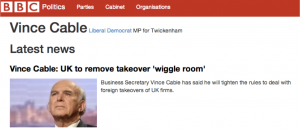
Saturday, and to Balfron Tower to witness the Rift Theatre Company’s immersive staging of Shakespeare’s Macbeth. A little context – Balfron Tower is a landmark structuralist tower blocks, designed by (Erno?) Goldfinger (he who would lend his surname, unwillingly, to the James Bond story), in the 1960s. Still inhabited today, it is about to undergo major renovation work, and thus retains its’ decaying and imposing, alien atmosphere.
I was fairly familiar with the idea of immersive theatre, despite not having experienced one yet, and was equally familiar with the play, given hazy memories of reading it whilst studying for GCSEs. So all in all, this promised to be an interesting evening. Consider this a review – three things that really leapt out at me, and a couple of minor, hopefully constructive, criticisms.
Crossing the Rift

We’re met at the base of the tower by the Bordurian border guards, and, having checked our (pre-delivered) visas, we’re warned of the dangers of crossing over the Rift into a fictional world. This immediately appealed to me – an explicit acknowledgement that we’re about to travel into a fictional world, albeit one which will feel entirely real, both to us and to those we meet inside.

This means we retain a sense of extra knowledge over the characters – we know the general shape of the narrative that will unfold, and they don’t; and we have an almost supernatural presence in the world. The characters can see us, touch us, speak directly to us, and vice versa, but the extent to which we can truly interact is limited. It is like we are truly liminal beings in this fictional world, trapped between being and not being.
Which, of course, puts us on a similar level as the very first characters we meet – the witches. They do have an active role in the world – indeed, it can be argued that they are the ones with an almost authorial force, influencing Macbeth and Banquo, setting in motion the chain of events that propels the drama.
This, in turn, blurs the boundaries between the meaning of us being in a fictional world, and them having supernatural powers – are they, therefore, closer to us than the other characters? Are they, in effect, audience members who’ve taken control of the world they’ve joined?
The Bordurians we meet, too, have a similar liminal status – they’re aware their own reality, ours, and that of the main characters, acting as our hosts, guides and chaperones, but also, at key moments, are in effect the opposite of the witches – the Bordurians are imposed upon by Macbeth and the others, so rather than having authorial influence, or the limited power of ourselves, they flit between acting in all three worlds.
This dynamic, the awareness of how our reality overlapped, or otherwise, with the rest of the people we met, was key to the immersion, for me.
The world unfolds
The other thing which strikes you, as you are led from room to room, from floor to floor, by the Bordurians, is the sheer scale of the production operation. As much as I was immersed in the fictional experience, I couldn’t help but wonder and admire how difficult this was to pull off successfully.
There are several audience groups going through the experience at a time, and staggered start times throughout the evening. Only one company of actors, though, which means that each actor plays several roles throughout the evening, being consistent for a single group, but different between the groups.
This had two effects – firstly, as we were led from room to room, our sense of the geography of the tower being fully disorientated, the world came alive. You’d be walking past nameless guards or Bordurian housekeeping staff, and hear snippets of other scenes going on. Not enough to fully realise the repeating nature of the production, but enough to feel like there truly was a world here, and you were only taking a particular path through it. Again, this really helped the immersion.
The second effect was that there would occasionally be delays whilst the actors moved from scene to scene, and from group to group. To negate this, the Bordurian hosts would essentially keep us in a holding pattern, entertaining us and making conversation. For the most part, this worked well, providing welcome moments of rest. But there were two moments of this type that had major impacts on the enjoyment of the experience – one positive, one less so.
Falling out of the world
The positive one first. As I said, moving from room to room had the wonderful effect of disorientating you, and almost forcing you into, for the most part, forgetting this was a play with a known narrative. And so, whilst your head’s spinning, and you’re still trying to keep a track of where you’re up to in the text, something truly brilliant happens.
I mentioned above about our relationship to the characters, and especially the witches – we’re visiting the world, able to be seen but trapped behind an indefinable barrier, preventing us from truly deforming the narrative – whilst the witches have that power too. So, when, in one of those lulls between action, and more precisely, during one of those mad dashes from room to room, we’re suddenly pulled aside by the witches and trapped in a room with them, the experience really becomes magical.
It’s hard to explain how much I loved this moment. The timing of it, combined with the murky and stormy weather as the sun descended through the hazy clouds, all leant to the supernatural atmosphere. We thought we knew the shape of what was going to happen, but here, in this moment, the witches aren’t content with taking control of the characters lives – they take control of ours, pulling the rug from under our feet, and pushing us into a story which isn’t the one we were expecting. A parallel narrative, which once again opens up the prospect that what we’re experiencing isn’t the full story – there’s a much wider, longer game at play here.
The actual details of what happens in those moments, I’ll not spoil – in a way, the detail matters least in this case. It was the feeling it evoked – of falling out of the world, of having a real twist in the experience. Not the kind of Hollywood twist in terms of a big reveal, but the sense of jumping a narrative track – one that really made you think, well, now, anything could happen, I don’t know what to expect from this moment on. That’s the kind of thing I really enjoy – you go into something expecting one kind of story, and you may ultimately get that, but there’s unexpected kinks and paths along the way, placing you in a real sense of narrative danger and uncertainty.
Some minor bruises
Some critique, then. The second major lull in the action comes towards the end of the play, as Birnam Wood comes to Dunsinane. This is a moment which should produce one of the most evocative images of the experience, being something that is incongruous on a stage, the audience anticipating exactly how the producers will choose to bring it to life.
Unfortunately, the choice made at this part of the story feels like the only mis-step – almost all the action takes place on video, which you watch whilst (mostly) safely ensconced in the flat you’ll be staying overnight in. Whilst the news reporting angle is a cute idea, for a short while, it falls flat when extended over a longer period, and I’m not convinced that the TV debate, studio guests, and reporter coverage, was the most visceral way to get this experience across.
It has a whiff of the war from The Day Today to it, and whilst part of the appeal may be the humour derived from the situation, it does deflate the drama somewhat. It’s completely understandable from a logistical point of view, of making sure the actors are able to cover the main scenes for everyone, but with the promise, suspense, and raw action right in front of you that’s been built up over the past couple of hours, it is probably the only major mistake in the production overall.
The only other small criticism I’d make is that it wasn’t made clear that the story would continue the following morning. Part of the experience is staying overnight in the tower once the main action is done, and then having breakfast (on the roof, weather permitting!) with the characters and others.
Now, there were three packages for tickets, one where breakfast was included, and two where breakfast was available for a small fee. What wasn’t made clear was that there was a coda to the story taking place during breakfast – as far as my group were aware, it simply was breakfast, and the story was over. Had we been aware of this, I think we may have been more likely to stay.
Back to reality
In conclusion, then, I really enjoyed the experience – others who have experienced Punchdrunk shows and the like may feel this didn’t compare, but for a first timer, it was wonderful. The immersion, the atmosphere, the setting – and that moment when it all turns upside down – fantastic. And lastly, a huge logistical and ambitious achievement on behalf of the cast and crew. Some minor problems, but overall, a great thing, and I’d love to do it again.






